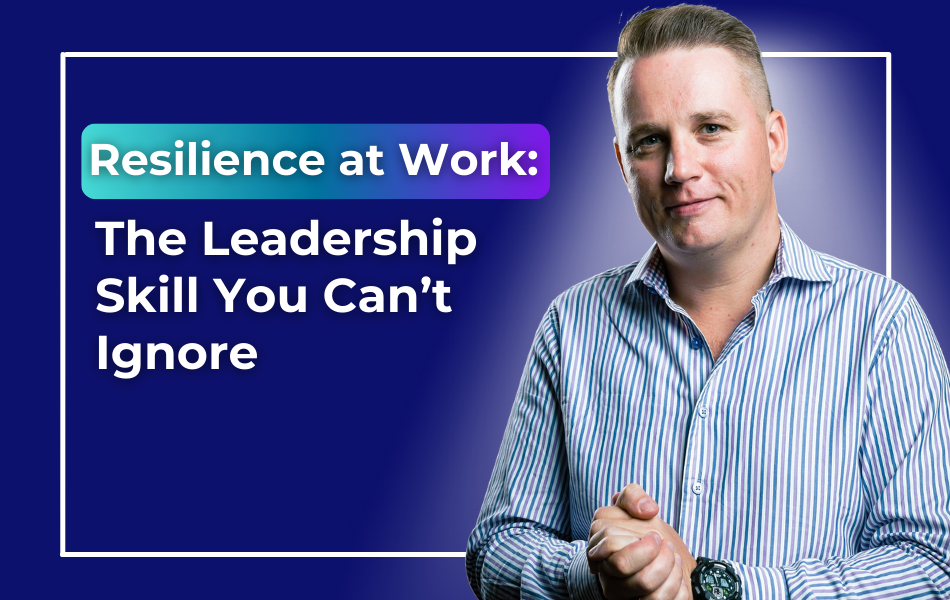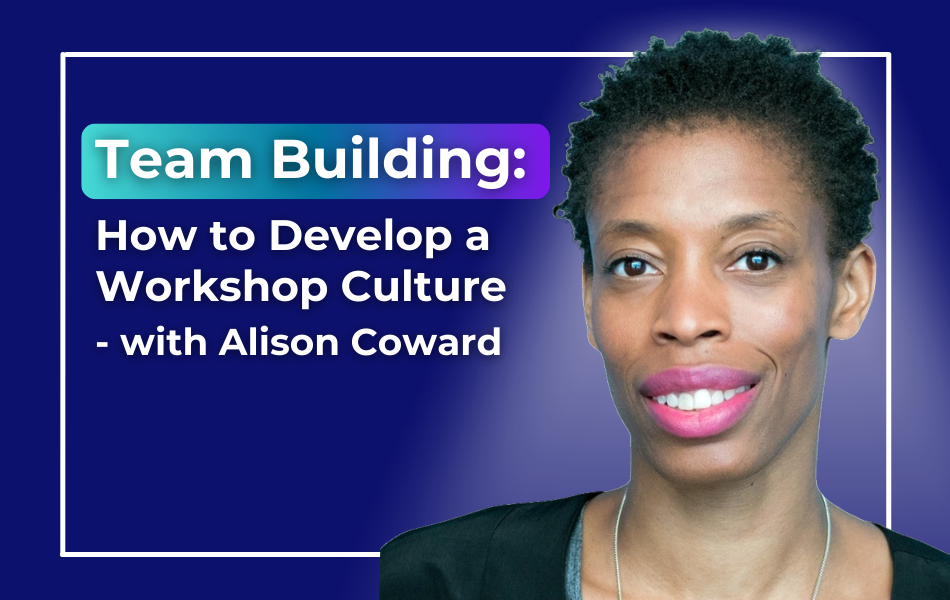
229. Feeling Guilty About Your Technical Skills Fading
About this Podcast
Ep. 229 – Do you worry that your technical skills are fading as you take on more leadership responsibilities? You are not alone!
In the latest episode of The Manager Track podcast, Ramona tackles this common concern for new and even advancing leaders. She shares practical insights on navigating the shift from being hands-on to focusing on leadership so you can continue to thrive without losing touch with your technical expertise. Tune in for advice on how to balance both worlds while climbing the leadership ladder!
Watch it on YouTube HERE.
Episode 229 Transcript:
0:00:00 Ramona Shaw: In this episode, we’re going to talk about what to do when you feel guilty about your fading technical skills as you spend more and more time on leadership and management tasks. Here are the two questions this podcast answers. One, how do you successfully transition into your first official leadership role? And two, how do you keep climbing that leadership ladder and continuously get promoted? Although the competition and the expectations get bigger, this show, The Manager Track podcast will provide the answers.
0:00:29 Ramona Shaw: I’m your host, Ramona Shaw. I’m on a mission to create workplaces where work is seen as a source of contribution, connection, and personal fulfillment. And this transition starts with developing a new generation of leaders who know how to lead so everyone wins and grows. In the show, you’ll learn how to think, communicate, and act as confident and competent leader you know you can be welcome to The Manager Track podcast. I’m happy that you’re here and dialing in this week’s topic on feeling guilty when your technical skills fade is one that is not to be underestimated.
0:01:04 Ramona Shaw: And if you have thoughts such as man, I miss doing the tactical technical work, or I can’t believe I can’t keep up like my employees or my direct reports, start to know more or get better than I was because I don’t ever have time to dig in and to the technical aspects of your role. Instead, you’re constantly in one on one meetings, in management meetings, hiring, interviewing, in leadership conversations, overall problem solving with people, but you’re not actually responsible for technical tactical outcomes.
0:01:39 Ramona Shaw: Feeling like that is slipping away and feeling either guilty about it or feeling unsure about it. Where, you might wonder, are other people going to question you is a real concern. I want to talk about a common concern and hopefully give you some ideas and perspective on how to think about this. As we dive in, I’ll talk about the benefits of actually fading technical skills, and then we’re going to talk about how fading technical skills can actually be an issue and an area of concern.
0:02:13 Ramona Shaw: And then we’re going to look at knowing all this, what should we do about it? I hope that you already by now know that you’re not alone. If you have this concern, this topic stood out to you and piqued your interest. You are not alone. I hear this often. It’s common now. The benefits that I see when working with leaders who are slowly but surely moving out of the technical rung is that they have to develop the skill to earn other people’s trust, not based on their technical competence and knowledge, but based on other things.
0:02:49 Ramona Shaw: In our leadership programs, we look at trust and developing trust as an important aspect. And we talk about this in different ways. One of the models we look at is Ken Blanchard’s ABCD model. The model talks about a the ability, so we earn trust through our competence, our abilities b for being believable, so acting with integrity. This is where having a leadership philosophy connects right into it. And if you haven’t heard me talk about having a leadership philosophy, check the show notes. We’re going to link other episodes on this topic there.
0:03:28 Ramona Shaw: The third aspect of the ABCD model, C, stands for care. So caring and having compassionate empathy for other people. That builds trust. It’s a relationship aspect. And then the last 1D stands for dependability. How dependable are you? How many of your commitments are you actually following through? Is what you say also what you do? We all have people in our lives who say a lot of things, commit to things, and then either are late with it or don’t do it, or they forget about it.
0:03:58 Ramona Shaw: Trust is not just earned through competence. And especially as you grow as a leader and you’re moving away from the technical tactical work, you have to start earning and relying on other aspects of trust. And fading technical skills will push you in that direction of building trust, where you recognize you have to learn how to earn other people’s trust through other avenues. The second one is that when your technical skills fade, you will naturally become more collaborative.
0:04:30 Ramona Shaw: In the past, you may have thought, I know it best, I know it all, and I can do it the fastest. So either I’m going to do it, and if we have to talk about it, then know that I’m going to be right. If you have shown up this way in the past, which I think we all have in one area or another, and that might have worked because people knew you were very competent, you had strong technical skills. But as these are fading, that approach won’t work anymore.
0:04:56 Ramona Shaw: Again, that saying, what got you here won’t get you there. You will have to adapt your success strategies. So the competence as a strategy will not work. You will actually have to become more collaborative, more conversational. You’ll have to include different people. You have to learn how to negotiate well, how to make your cake, how to listen to others, how to truly understand where they’re coming from.
0:05:19 Ramona Shaw: Because one of the biggest issues if you think you’re right is confirmation bias, which means you only see and listen to the things that affirm your existing opinion. Versus being curious, try to understand why does someone else have a different opinion about the ideal solution or about the topic we’re talking about. So make you a better collaborator, which includes communication skills. And then the third benefit is that it will provide bigger and better growth opportunities for your team.
0:05:47 Ramona Shaw: They will recognize that they have knowledge that you don’t have and that is motivating. They see that they can contribute in a very specific way to the team that is unique to their experience. Again, their knowledge. Also alongside that, when you realize that you don’t have all the answers and they start to realize that you don’t have all the answers because you’re fading technical skills, you cannot rely on just being the advice giver and the one who knows it all.
0:06:17 Ramona Shaw: You will have to learn to coach your team members, to support them and help them grow. Not by telling them what to do, but by asking challenging questions, prompting them to think through problems from different perspectives, to hone in on potential risks, to identify possibilities and opportunities to push them outside of their comfort zone. That is what coaching can do when you’re the one who’s always giving you advice and has all the answers because of your strong technical skills.
0:06:51 Ramona Shaw: Most of us have a hard time leaning into the coaching aspect because it seems like a slower path to the outcome. That is a myth. Not true. It’s only short term, more time consuming to ask a question versus giving a straight answer. In the mid to long term, it totally backfires because everyone become dependable on you. But I’m going on a tangent here and that’s not related to the topic of this episode, so let me get back to that.
0:07:19 Ramona Shaw: You will become a better coach to your team members. They will have more room to grow when your technical skills fade. These are benefits that will present themselves to you that you can leverage and make use of. As you’re noticing that your technical skills are fading, they will not be coming naturally and organically. You really have to lean into coaching, collaborating and earning trust, not just through your competence.
0:07:47 Ramona Shaw: So these are the benefits. Now let’s talk about some of the drawbacks of not being so close anymore to the technical skills that your team has. The first one is it gets difficult with decision making. So making decisions well means to being well informed, to be able to connect the dots, to see things from different perspectives, have different options on the table to choose from. Now, if you’re technically not as savvy anymore in whatever profession you’re in, by the way, you may be missing data points critical to your decision making.
0:08:20 Ramona Shaw: To sort of undo this, you will have to gather the data, know where to find it. You have to know whom to talk to in those specific moments, go deep and get that information, even if as a whole you’re not engaged in this type of work anymore. So know who to speak to and what to ask for is really important to mitigate that downside in the decision making process. The second one is around problem solving.
0:08:49 Ramona Shaw: Obviously, when there’s a problem that your team presents to you and you don’t have the technical skills to help them with that, it is more difficult for you to help out. And so these are the moments where, if you’re not keeping up, at least with the most important technical aspects of your work, it could be that your problem solving skills will be diminished again. Here, too, you have to know what specifically are you diving into?
0:09:16 Ramona Shaw: What is it that you’re trying to understand? Get really good at asking questions and to apply critical thinking. Just because you’re not as close to it anymore doesn’t mean you’ve lost all your experience and expertise in it. Use that background that you have that got you to the position that you have now to apply critical thinking and to ask really good questions. So that is around problem solving.
0:09:43 Ramona Shaw: The third one is that you might be missing out on opportunities that you could leverage. Efficiency gains, opportunities for cost savings, opportunities to implement a new product, AI, for example, because you aren’t technically working on it. And if your team isn’t presenting those ideas and elevating them up to your level, you might feel a bit stagnant because you’re not in it to see it. So you don’t know, where do we have cost inefficiencies? Where do we have process and productivity inefficiencies?
0:10:16 Ramona Shaw: Where do we have risk exposure that you might not be aware of because you’re not in it day to day. So one way to address this is to bring your team together, create the space and time to think through opportunities and potential risks. So you go really deep in those specific sessions, trying to understand what they’re doing, what they’re seeing, and you’re trying to tap into their knowledge, but elevating it up. So don’t just rely on your team members just bringing those topics to you or those ideas to you, which, if they do, amazing, but they may not, or not everyone does.
0:10:53 Ramona Shaw: It’s your job to create the dialogue and to get people’s brains going. It could be a monthly brainstorming session. It could be a quarterly, pre mortem, postmortem conversation that you have, or a very dedicated session where you address risks or potential opportunities, or AI or process streamlining. And so forth. So those are the three key areas where I think leaders are mostly impacted in a negative way by losing touch with their technical tactical work that the rest of the team still has, decision making, problem solving, and identifying opportunities and risks. So the questions I suggest you think about is one, first and foremost, why are you worried about defending technical skills?
0:11:41 Ramona Shaw: Is it because you worry about not being seen as competent? Because you worry about being seen as lazy? Is it because you actually really love your technical skills and you don’t like not being able to apply them and execute and be in that kind of work dynamic because you don’t have the time anymore? Or is it because you’re actually thinking about what will make me effective? And is the loss of, or is this the fading of technical skills impairing my ability to lead and to grow in my career?
0:12:16 Ramona Shaw: And so I think that last one is the question we really want to focus on. If you notice that it’s because you worry what other people may think of you, even going technically deep will probably not solve that because you will find, as you grow and elevate as a leader, you will always find some kind of reason why other people may question you. So there may be something deeper at the root of this, where you’re looking for evidence or reasons why your personal internal doubts may be justified.
0:12:48 Ramona Shaw: Could be, not sure, right? But could be. This is something that I, that I see at times. If you are just enjoying the technical skills and now you don’t apply or have time to apply them anymore, that’s a different conversation. It’s like, okay, great, you do enjoy it. Well, first of all, do you enjoy being a leader just as much or more, or do you actually start to question whether you should choose an expert leadership track versus a people leadership track?
0:13:14 Ramona Shaw: And there’s pros and cons on both sides. A very personal decision. If you do actually consider this from the point of view of how is this impacting my leadership competence, then this is what we’ve talked about in this episode, is maybe a good starting point to evaluate what are your personal pros and cons and how to go about it. Second question on that note, and what makes you more effective? If you do have fading technical skills and you want to mitigate those downsides, think about what specifically would give you the most bang for your buckley.
0:13:52 Ramona Shaw: Which technical skills? If you’re a marketing manager and you love designing things, and so now you’re recognizing like, hey, Photoshop, I’m sort of not keeping up with the newest versions or with AI and design. I’m not keeping up. Or is it actually for you in marketing that the biggest aspect is knowing about SEO or click through rate or growth hacking or data analytics? What are actually the most critical aspects? Critical technical aspects that will give you the biggest ROI.
0:14:25 Ramona Shaw: And that’s where I would allocate some time to continuously develop them or to maintain them and at least keep up, especially in industries or professions where there’s a lot of growth happening and things constantly change, such as, but not limited to technology. And once you’re clear on this, then look for opportunities to do this both off the job, meaning in your spare time, are there LinkedIn learning courses? Are there networking groups to just have a dialogue with? Are there conferences to go to?
0:14:57 Ramona Shaw: Are there books you want to read, podcasts to listen to? But how do you keep that, keep your mind fed with information on these technical things or where can you apply it? So that’s one off the chop. But then on the chop, ask yourself, how do I stay in the loop and have exposure to the technical skills without. And here, this is really important without inserting myself too much. What I see people do sometimes is, hey, I don’t want to lose touch with what’s going on.
0:15:29 Ramona Shaw: So I’m going to join a couple of meetings. I’m going to join this project meeting. I’m going to sit in. When these people talk and they do this on a regular basis, your presence will change the dynamic of that meeting. If you are leading that team, or if you have a senior role or even a role with authority, if you have a team member who’s running a project and you find that interesting and you want to stay in the loop of it, and you join that meeting, you immediately undermine that team member’s authority.
0:16:03 Ramona Shaw: Because now people will look to you and people will, and people will want to shine in front of you. It comes with hierarchy. It’s nothing wrong. And I’m sure there are exceptions and cultures where that’s not the case in the vast majority of time. However, if you join a meeting where you’re not leading it, but one of your direct reports is leaving it, that person’s authority is undermined by your presence.
0:16:29 Ramona Shaw: So do it very intentionally once in a while. Explain what your role is in the meeting. Make sure that you’re not undercutting your employee, your direct report. Make sure that you let other people speak first before you say anything. And again, don’t make this a habit. Now, outside of meetings, you might be interested in participating in doing some work, or reviewing code or campaigns, or be out in the field or meet clients or customers, do all that. That’s great. It actually helps you expand your perspectives again. It gives you a better sense and pulse of what’s going on.
0:17:08 Ramona Shaw: It may help you with keeping up with the technical changes that are happening or refresh your technical skills. Do it very intentionally though, and without taking on and owning the work. If you worry about being seen as someone who isn’t competent out of that fear, you’re getting some kind of project handed over and instead of delegating it, although your team would be fully capable of handling it, you decide to keep it for yourself.
0:17:38 Ramona Shaw: That’s likely going to backfire once you may overcommit yourself because not really part of your job description to it might create resentment from your team because they wonder why you took it on. Are you not trusting them? Are you choosing the fun, fancy projects for yourself and not letting others shine or learn from them? Is it a seller? Right? So it’s a bit of a selfish move. They may not understand that.
0:18:02 Ramona Shaw: So being mindful that when you insert yourself in order to get closer to the technical stuff, do it without undermining other people’s authority and doing without owning it, just insert yourself. Be helpful if you want to get a sense of what’s going on. Ask all questions, get upholds of things, apply your practice, roll up your sleeves for a little bit, but then get yourself back out and make sure that ownership is always clear with someone else.
0:18:31 Ramona Shaw: So generally speaking, those would be my recommendations on how to address this worry that your leadership effectiveness may be compromised by fading technical skills. If this is a worry that you have, I hope me talking about it. Also, sharing that you’re probably not alone is helpful and you got some ideas on how to on one hand leverage the fact that you’re moving away from technical skills and on the other hand also mitigate the downside with very intentional actions.
0:19:02 Ramona Shaw: If you have friends, colleagues, team members who would benefit from hearing this as well, please share it along. It means a lot to us. Thanks so much and we’ll see you next week with another episode of The Manage Track podcast. If you enjoyed this episode, then check out two other awesome resources to help you become a leader people love to work with. This includes a free masterclass on how to successfully lead as a new manager.
0:19:24 Ramona Shaw: Check it out@archova.org masterclass the second resource is my best selling book, the confident and competent new how to quickly rise to success in your first leadership role. Check it out at our I or head on over to Amazon and grab your copy there you can find all those links in the show notes.
REFLECTION & DISCUSSION QUESTIONS
- What is my primary concern about my fading technical skills, and how is it affecting my confidence as a leader?
- Which technical skills are most critical for my current role, and how can I stay updated on these areas without compromising my leadership responsibilities?
- How can I use my evolving role to enhance my team’s growth and effectiveness, while also addressing any gaps in my own technical knowledge?
RESOURCES MENTIONED
- Register for the GenAI for Managers Summit at www.archova.org/summit
- Learn how to turn your 1-on-1 meetings from time wasters, awkward moments, status updates, or non-existent into your most important and valuable meeting with your directs all week. Access the course and resources here: ramonashaw.com/11
- Have a question or topic you’d like Ramona to address on a future episode? Fill out this form to submit it for her review: https://ramonashaw.com/ama
- Check out our free masterclass on how to successfully lead as a new manager: https://archova.org/masterclass
OTHER EPISODES YOU MIGHT LIKE
- Episode 54 – 3 Big Mistakes New Managers Make & How to Avoid Them
- Episode 64 – New Managers: Being “Productive” Means Something Different Now
- Episode 106 – What Is Your Leadership Philosophy?
WHAT’S NEXT?
Learn more about our leadership development programs, coaching, and workshops at archova.org.
Grab your copy of Ramona’s best-selling book ‘The Confident & Competent New Manager: How to Rapidly Rise to Success in Your First Leadership Role’: amzn.to/3TuOdcP
If this episode inspired you in some way, take a screenshot of you listening on your device and post it to your Instagram Stories, and tag me @ramona.shaw.leadership or DM me on LinkedIn at linkedin.com/in/ramona-shaw
Are you in your first manager role and don’t want to mess it up? Watch our FREE Masterclass and discover the 4 shifts to become a leader people love to work for: www.archova.org/masterclass
Don’t forget to invest time each week to increase your self-awareness, celebrate your wins, and learn from your mistakes. Your career grows only to the extent that you grow. Grab your Career Journal with leadership exercises and weekly reflections here: ramonashaw.com/shop
Love the podcast and haven’t left a review yet? All you have to do is go to ramonashaw.com/itunes and give your honest review. Thanks for your support of this show!
* Disclaimer: Shownotes may contain affiliate links. That means that I am awarded a small commission for purchases made through them, at no added cost to you.







